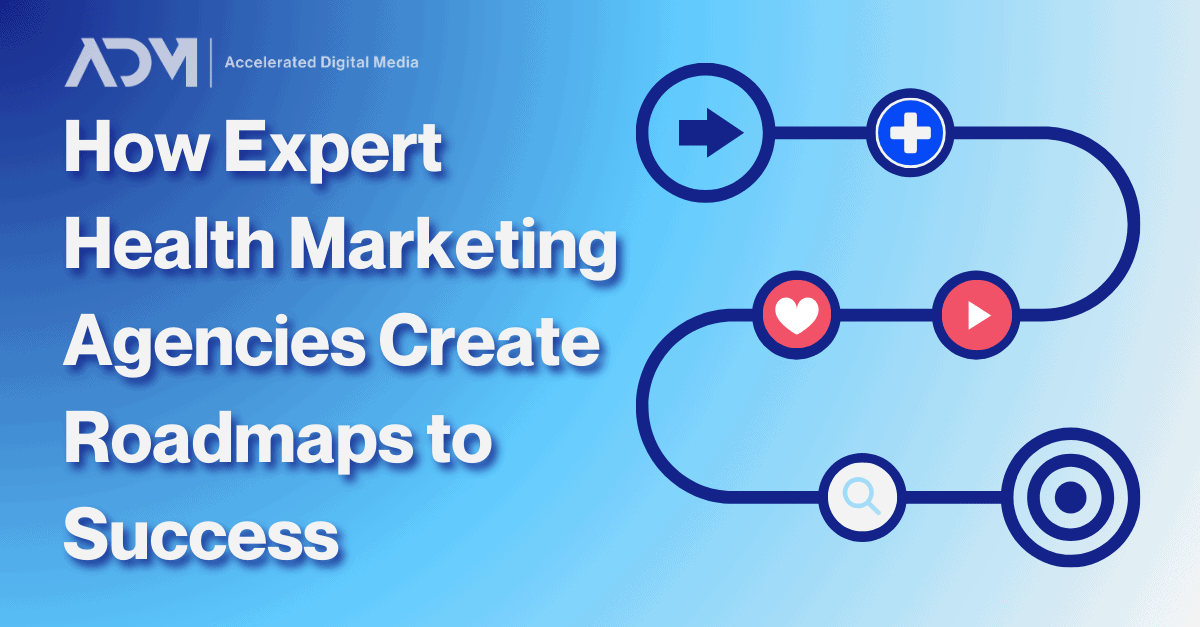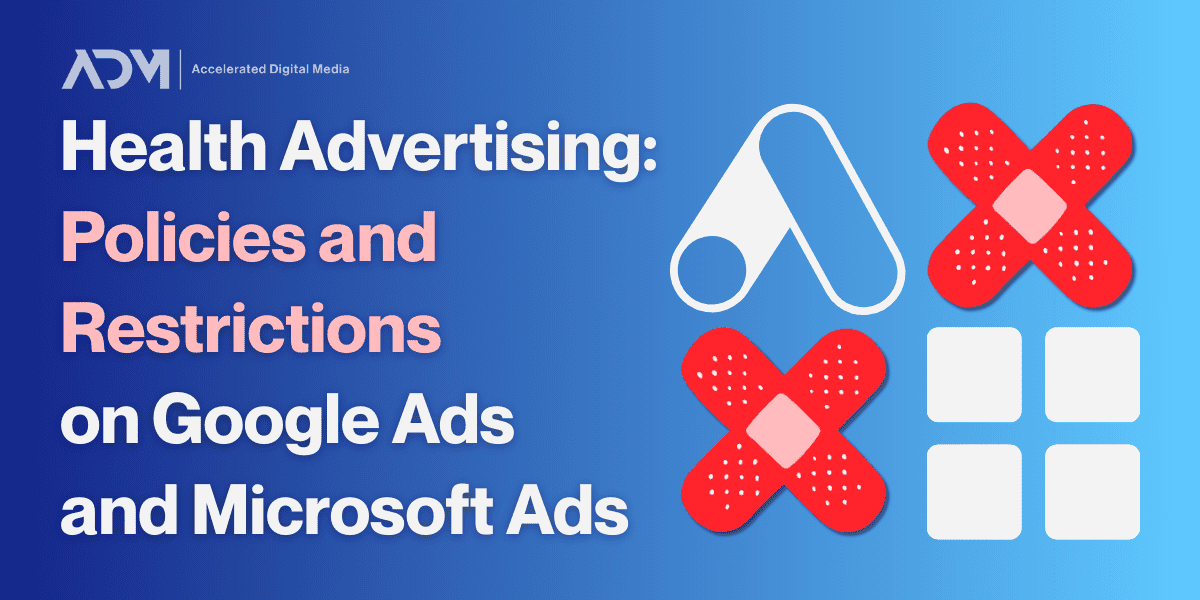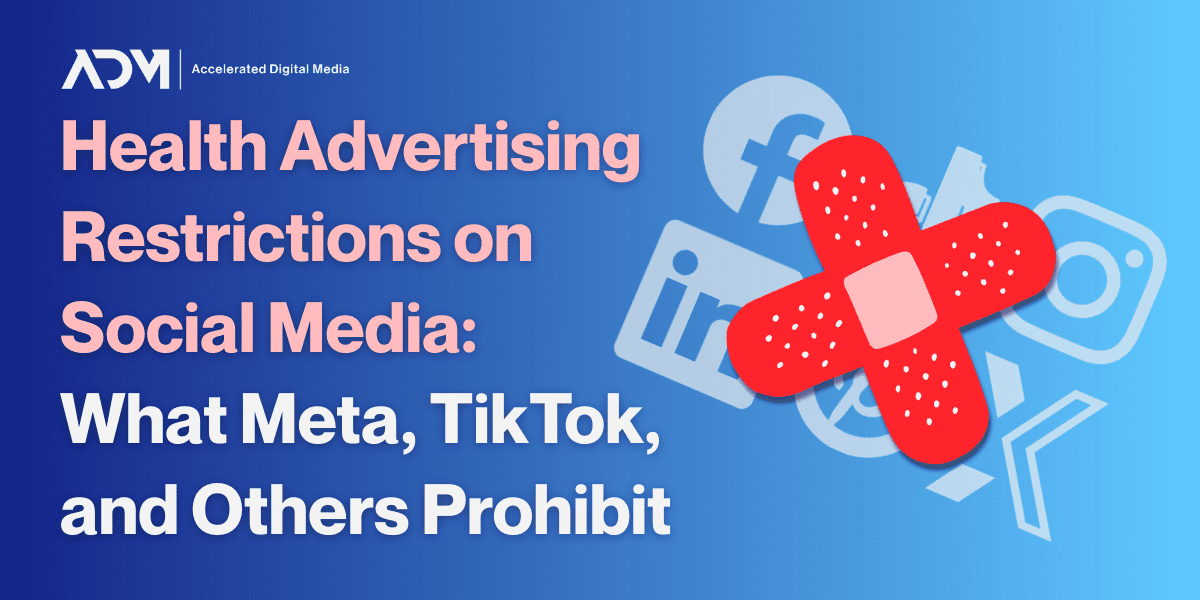Health marketing is both a niche industry and a broad umbrella. While distinct challenges and key privacy legislation apply to most brands in the health landscape, different health brands operate with a wide array of unique business models. Good health marketing relies on an understanding not just of the wider industry’s rules, but also of the ways that different healthcare brands find patients and measure success. A savvy healthcare marketing agency has to navigate these bumpy roads to help lead brands to their unique destinations.
In this blog, we’ll dive into the ways that good health marketing agencies:
- Design marketing programs based on distinct health offerings and patient journeys
- Measure success across different health business models
- Validate that they are bringing in high-quality leads
- Attribute marketing impact throughout the funnel
All of this depends on close communication with their client partners to learn the profiles of their ideal patients to build brand-specific strategies and continually improve them through testing.
Formulating Appropriate Healthcare Marketing Strategies and Goals
When working with health brands, marketers should focus on aligning marketing with the patient journey. That can only happen if the marketing team has an intimate understanding of how their health partner’s patients learn about conditions and treatments. A good healthcare marketing agency will know how to ask the right questions to learn this information and apply it to their strategies. For instance:
Awareness Stage: Early on in the patient journey, you’re looking to become recognizable to patients who may be searching for care. Is the treatment offering broad enough that wide targeting on social media will be useful? Is it more narrow, where your awareness tactics might be to place contextual ads on pages that contain a specific symptom-related keyword? At this stage, you’re primarily defining targets with high-level KPIs like views, impressions, and clicks.
Research Stage: As potential patients progress to the research stage, your goal is to engage with them during their research phase. A good marketing agency should know: Are there a broad range of health offerings in this space? How much research do patients typically do before making decisions? Paid search tactics are often crucial here, demanding a good keyword strategy and landing pages that address specific patient questions. Here, you might be evaluating based on some broader goals—like click-through rate (CTR)—or some on-page engagements, like an email provided or an on-site survey filled out.
Evaluation/Selection Stage: At this point, the objective is to outline the specific benefits of the health offering in question. Who is eligible for this health service? Does the health brand accept insurance and if so, which? This is where paid search campaigns shift focus from informational to intent-based (and branded) keywords, while the accompanying ad copy emphasizes benefits, eligibility, and availability. Here, your goals should focus on actions like sign-ups or purchases.
Proving Value Based on Different Health Business Models
Healthcare digital marketing is there to increase revenue, but how a health marketing agency targets and validates that effort will depend on the brand’s business model. Success metrics in health digital marketing vary between brands who sell services and those who offer products.
Health brands who provide services (like online counseling or therapy) typically prioritize patient acquisition and will optimize their digital marketing campaigns on a Customer Acquisition Cost (CAC) basis.
Conversely, product-based health companies (like medical devices or supplements) often focus on maximizing revenue and target Return on Ad Spend (ROAS) for the most cost-effective results.
Subscription-based models blend both service and product elements, requiring a nuanced approach to balance and weight the revenue or value derived from subscriptions appropriately within the advertising program.
Marketing for High-Quality Healthcare Leads
Ensuring quality leads is essential across all marketing, but it can be particularly important for companies whose business model relies less on generating a high volume of one-off interactions and more on providing a continuous service—which is the case for many health brands.
This again is where strong communication comes into play. A healthcare marketing agency must work with a client’s internal team to stay up to date on their incoming lead quality. If the engagement and conversion numbers look great on the marketing side, but they’re resulting in poor fit patients who drop off after one appointment, then the marketing really isn’t working.
Marketers can address low-quality leads by importing quality signals back into ad platforms so they can refine targeting and optimize towards the most valuable leads. This process often involves analyzing key factors such as: which keywords lead to low-quality leads, geo-locations where certain products or services are rare or unavailable, and demographic trends affecting customer profiles.
Attributing Success Throughout the Funnel
Lower-funnel campaigns generate directly-attributable conversions, but it’s important to know what role your education and awareness health advertising plays in feeding those campaigns. An expert health marketing agency will have the expertise to set up proper measurement and attribution tools to look at outcomes incrementally so you can learn about the effectiveness of your top-of-funnel campaigns.
Agencies use methods like lift studies, which track changes in demand for targeted keywords over time, and consideration studies, which evaluate improvements in CTR or on-page metrics, to understand for exposed audiences.
Standard incrementality tests include:
- Geo-Testing: Compares regions with and without ads to measure impact.
- Holdout Testing: Evaluates performance differences between groups exposed to ads and those withheld.
- Time-Series Analysis: Analyzes performance over time with on/off ad cycles.
- Matched Market Testing: Utilizes similar markets to isolate advertising effects.
- Channel-Specific Testing: Measures incrementality within specific ad channels.
While restrictions complicate how health marketers receive data, an experienced health marketing agency will understand how to run accurate tests based on compliant strategies.
Choosing a Right-Fit Health Marketing Agency
From the outset, a quality health marketing agency will prove itself through its portfolio. If it has a robust array of health clients across a range of business models in this space, there’s reason to have confidence they’ll be able to understand and assist your health business.
Other factors, like partnerships and technology offerings, are also vital. As health marketing grows more complicated, it’s important to work with marketing providers who stay up-to-date with new platform rules and legal policies and are in position to help implement specialized tools that enhance compliance and patient privacy.
Through innovation, continual optimization, and transparent communication, the right health marketing agency empowers health brands to thrive among the complexity, differentiate themselves from competitors, and ultimately drive sustainable growth and patient satisfaction. If you’re looking to get on that road, consider reaching out to the ADM team today.




